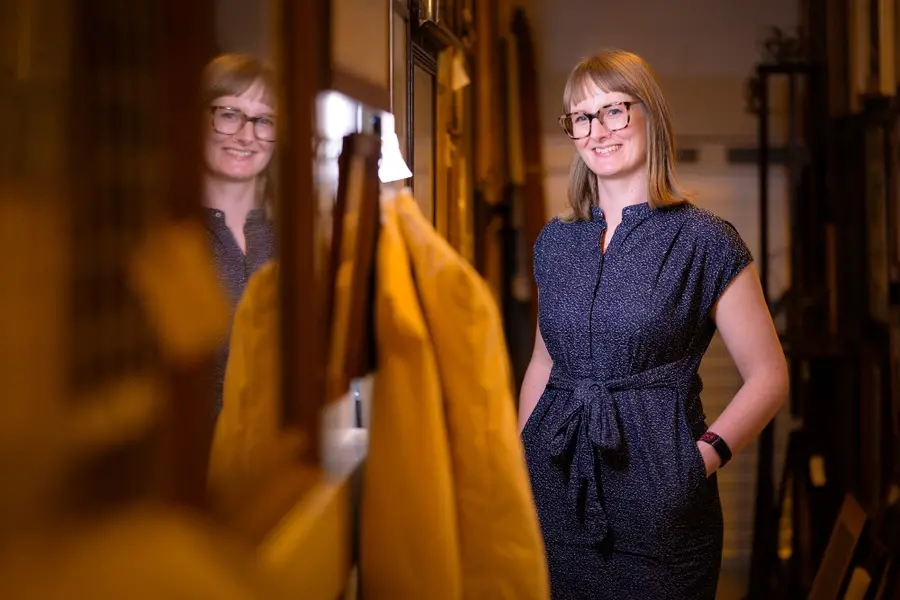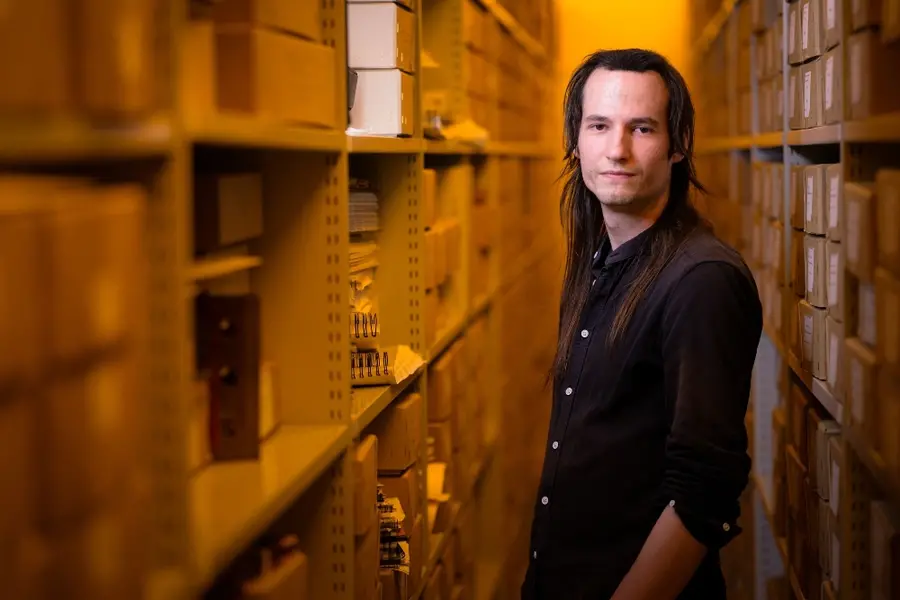The Royal Institution has today confirmed the award of two new Freer Prize Fellowships to history of science researchers for the 2024/25 academic year. The awards follow a competitive application process among a strong and diverse field of international researchers.
Sheryl Wombell from Cambridge University and Stefan Bernhardt-Radu from the University of Leeds will each take up their one-year Fellowship at the Ri in October.
Sheryl, who is exploring the movement of information about health and healing amongst exiled and travelling elites in the mid-seventeenth century; and Stefan, who is focused on a 20th-century history about developmental genetics, will now have access to Ri resources, archives and support while completing the final year of their PhD.
Director of the Royal Institution, Katherine Mathieson, said: “We are delighted to be announcing Sheryl Wombell and Stefan Bernhardt-Radu as our 2024 Freer Fellows. Their excellent scholarship and their commitment to communicating their research means they are perfectly placed to contribute to the Royal Institution’s heritage of scientific discovery and pioneering public engagement”
Dr Sophie Forgan, a Trustee of the Philip Freer Studentship Trust, said: “The Freer Trust was established to support postgraduate students whose work in the history of science could make a difference and engage the public with compelling research. We are delighted that applications from a wide variety of institutions have continued to grow. The judges were impressed by the range, quality and ambition of the research being undertaken.
“The Trust has appointed two new Fellows for 2024-25. Their work, in early 20th century genetics and 17th century networks of knowledge on health and healing respectively, has the potential to make a significant contribution at the Ri to public engagement with science, and an appreciation of the diverse ways that knowledge is made.”

Sheryl’s research topic examines the movement of information about health and healing amongst exiled and travelling elites in the mid-seventeenth century. Through three interconnected case studies of men on the move between medical cultures, she examines the agency and creativity of individuals in dealing with illness, negotiating medical relationships, and coping with the mass of information those encounters generated. Sheryl’s research highlights how the problems of verifying authentic knowledge, evaluating contradictory claims, and establishing trustworthy sources were amplified by mobility, in turn revealing the historical precedents of present-day challenges in medical communication.

Stefan’s research is a 20th-century history about developmental genetics through a historical analysis of Julian Huxley’s biological views. It shows the ways in which philosophical debates on the nature of life and knowledge shaped intellectual and public debates about how biological inheritance worked. At a time when new biological approaches and the manipulation of life are under intense scrutiny, Stefan’s project aims to inform our current academic and public debates about the nature of inheritance, wider philosophical debates, and its public representation.
As Freer Prize Fellows, Sheryl and Stefan will each benefit from significant opportunities to communicate their research through the support of the Royal Institution as well as receiving guidance for publication plans and further research grant applications training in science communication and engagement opportunities and techniques, and a stipend funded by the Phillip Freer Studentship Trust.
About the Philip Freer Studentship Trust
Philip Freer was a collateral descendant of world-famous Ri scientist Michael Faraday and a great philanthropist who established the Philip Freer Studentship Trust to support postgraduate students to “make a difference in the world”. While studying the history of magnetic research at the Ri, Michael Faraday was inspired to try some historical experiments for himself and in doing so discovered electromagnetic rotations. The new Ri Freer Prize Fellowship have been established to coincide with the anniversary of Faraday’s famous discovery and celebrate Philip Freer’s vision of science and heritage working together to make that difference.
About the Ri Freer Prize Fellowships
The Ri Freer Prize Fellowships are intended as writing-up awards for doctoral candidates researching the history of science; history of the Royal Institution; or heritage conservation science. They are awarded on the basis of candidates’ ability to identify and communicate the significance and potential of their research to provide insights into present day challenges and to contribute to shaping equitable and sustainable futures, in a compelling way that can engage a general interest audience.
Ri Freer Prize Fellows will benefit from significant opportunities to communicate their research through the support of the Royal Institution; receive mentorship from the UCL and Ri Lecturer in the History of Science and Technology, including guidance for publication plans and further research grant applications; and a stipend funded by the Free Trust.
Ri Freer Prize Fellows commit to the public communication of their research, including short films, tours for visitors to Ri collections, and online content.
The call for the next round of Ri Freer Prize Fellowships will be announced in early 2024.
